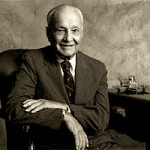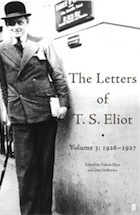By JULES EVANS [Financial Times] – The London Philosophy Club, of which I am an organiser, is the biggest in the UK. Our 2,000 members include bankers, lawyers, therapists, advertising people and a few academics looking for a more social form of philosophy. We hold free monthly meetings in pubs, cafés, galleries, parks and restaurants. Sometimes we try to match the topic to the venue: last week a group met to discuss Italian philosophy in a pizza restaurant by the River Thames.
Typically, a speaker is invited to give a 30-minute talk. Lord Maurice Glasman, Ed Miliband’s favourite philosopher, turned up at the Green Man pub in Euston, north London, two minutes before the start of a recent meeting, downed a double espresso and a Red Bull, then launched into a bewitching monologue on the search for the common good. We followed this with a question and answer session where Glasman’s thesis was politely assaulted, before breaking into smaller groups to discuss the main ideas. It’s surprising how quickly people share their beliefs with complete strangers.
. . .
Each member has his or her particular interests. I’m fascinated by Socrates’ idea that philosophy can be a “therapy for the soul” (it’s where the word “psychotherapy” comes from), and at a meeting last month we explored the links between philosophy and cognitive behavioural therapy….I was particularly moved by Matthew, a 30-year-old who told us he’d inherited bipolar disorder from his father. He’d learnt to manage it using a combination of CBT and ancient philosophy. “My father killed himself, but I’m hoping I’ve got the better of the condition,” he said. “Philosophy isn’t an abstract intellectual exercise for me. This is life and death stuff.”
Continued at the Financial Times |
♦
…and nothing quite like the pleasure of Gilbert Ryle.
By JIM HOLT [New York Times] – What does it mean to take pleasure in a piece of prose? Is there a sort of tingle you feel as you read it? That can’t very well be, since then it would be the tingle you were enjoying, not the prose. (And wouldn’t such a tingle distract you from your reading?) Oddly, one of the most pleasurable pieces of analytic philosophy I’ve come across is itself an article entitled “Pleasure,” where, in a mere nine pages, all the reigning understandings of pleasure are gently deflated. Its author, the Oxford philosopher Gilbert Ryle (1900-76), was among the dominant figures in mid-century analytic philosophy. He was also a supremely graceful prose stylist, the coiner of phrases like “the ghost in the machine,” and, not incidentally, a votary of Jane Austen. (Asked if he ever read novels, Ryle was reputed to have replied, “Oh yes — all six, every year.”)
Ryle may head the hedonic honor roll of analytic philosophy, but the roll is a long one. It includes all the philosophers I named above — especially Quine, whose classic article “On What There Is” can be read over and over again, like a poem. It also includes the Harvard philosopher Hilary Putnam, whose logical lump is leavened by a relaxed command of language and a gift for imaginative thought experiments. It includes younger philosophers (well, younger than 65) like Kwame Anthony Appiah and Colin McGinn — both of whom, in addition to their technical and not-so-technical philosophical work, have written novels. (One of Appiah’s is a philosophical murder-mystery bearing the title, “Another Death in Venice.”) And it certainly includes Bertrand Russell, who was actually awarded a Nobel Prize in Literature — although not, I hasten to add, for his work on Principia Mathematica.
. . .
I hope I have clinched my case for analytic philosophy as belles lettres.
Continued at The New York Times | More Chronicle & Notices.






























